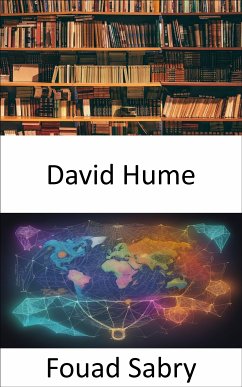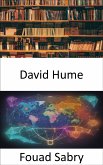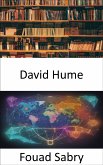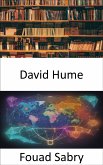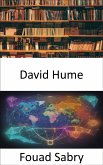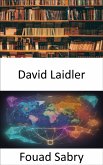Who is David Hume
David Hume was a Scottish Enlightenment philosopher, historian, economist, librarian, and essayist, who is best known today for his highly influential system of philosophical empiricism, skepticism, and naturalism. Beginning with A Treatise of Human Nature (1739-40), Hume strove to create a naturalistic science of man that examined the psychological basis of human nature. Hume followed John Locke in rejecting the existence of innate ideas, concluding that all human knowledge derives solely from experience. This places him with Francis Bacon, Thomas Hobbes, John Locke, and George Berkeley as an empiricist.
How you will benefit
(I) Insights about the following:
Chapter 1: David Hume
Chapter 2: An Enquiry Concerning Human Understanding
Chapter 3: Deism
Chapter 4: Empiricism
Chapter 5: John Locke
Chapter 6: Natural theology
Chapter 7: Philosophy of religion
Chapter 8: Reason
Chapter 9: T. H. Green
Chapter 10: J. L. Mackie
Chapter 11: Associationism
Chapter 12: J. Baird Callicott
Chapter 13: Fact-value distinction
Chapter 14: George Campbell (minister)
Chapter 15: Metaphysical naturalism
Chapter 16: Ernest Campbell Mossner
Chapter 17: Four Dissertations
Chapter 18: Of Miracles
Chapter 19: An Enquiry Concerning the Principles of Morals
Chapter 20: Moral rationalism
Chapter 21: British philosophy
Who this book is for
Professionals, undergraduate and graduate students, enthusiasts, hobbyists, and those who want to go beyond basic knowledge or information about David Hume.
David Hume was a Scottish Enlightenment philosopher, historian, economist, librarian, and essayist, who is best known today for his highly influential system of philosophical empiricism, skepticism, and naturalism. Beginning with A Treatise of Human Nature (1739-40), Hume strove to create a naturalistic science of man that examined the psychological basis of human nature. Hume followed John Locke in rejecting the existence of innate ideas, concluding that all human knowledge derives solely from experience. This places him with Francis Bacon, Thomas Hobbes, John Locke, and George Berkeley as an empiricist.
How you will benefit
(I) Insights about the following:
Chapter 1: David Hume
Chapter 2: An Enquiry Concerning Human Understanding
Chapter 3: Deism
Chapter 4: Empiricism
Chapter 5: John Locke
Chapter 6: Natural theology
Chapter 7: Philosophy of religion
Chapter 8: Reason
Chapter 9: T. H. Green
Chapter 10: J. L. Mackie
Chapter 11: Associationism
Chapter 12: J. Baird Callicott
Chapter 13: Fact-value distinction
Chapter 14: George Campbell (minister)
Chapter 15: Metaphysical naturalism
Chapter 16: Ernest Campbell Mossner
Chapter 17: Four Dissertations
Chapter 18: Of Miracles
Chapter 19: An Enquiry Concerning the Principles of Morals
Chapter 20: Moral rationalism
Chapter 21: British philosophy
Who this book is for
Professionals, undergraduate and graduate students, enthusiasts, hobbyists, and those who want to go beyond basic knowledge or information about David Hume.
Dieser Download kann aus rechtlichen Gründen nur mit Rechnungsadresse in A, B, BG, CY, CZ, D, DK, EW, E, FIN, F, GR, H, IRL, I, LT, L, LR, M, NL, PL, P, R, S, SLO, SK ausgeliefert werden.

